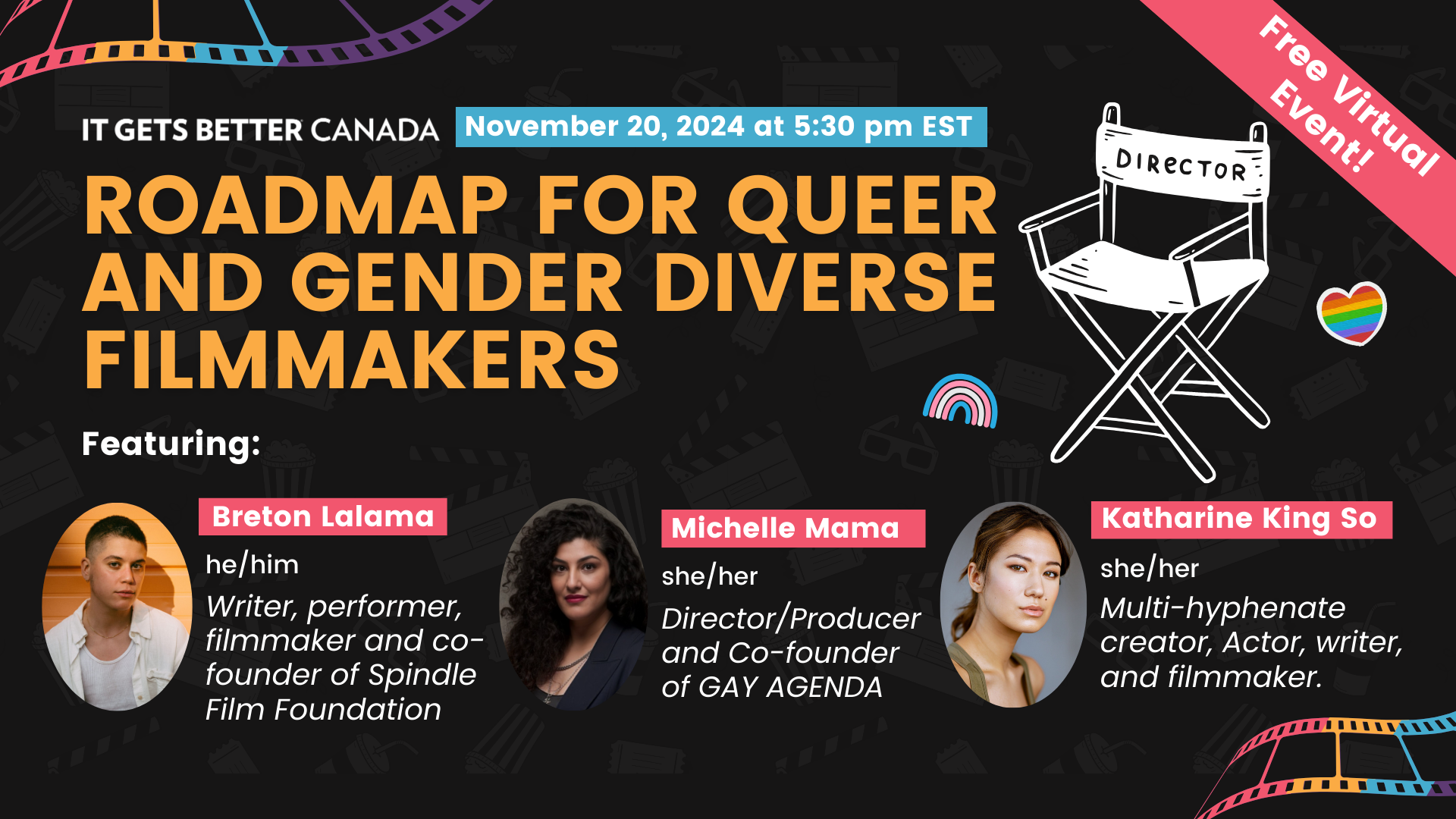
Queering the Roadmap to Filmmaking
Free Livestream Event – November 20, 2024 Have you ever wondered how to get your foot in the film industry? What grants or funding opportunities

We sat down with the co-founder of Spindle Films Breton Lalama! Breton (he/him) is a writer, performer, and filmmaker committed to enriching and diversifying queer and trans representation in storytelling. He is a Merritt and Dora award nominee and a Broadway World Award recipient whose work has been published and shown internationally.
“We see so little minority joy. And again, if you’re only ever seeing stories of struggle, how can you dream past that for yourself? There’s so much power in what we consume.”
How did I get into film? As a little kid, I was always making, my parents had a camera to record, cause I guess I’m old now. I guess that’s happened. They had a VHS recording camera. And so I would always steal it. It was like the most expensive thing, I think, my family owned and I would steal it. Maybe not because of the car, but anyways, it was up there. I would steal this thing and I’d run around with it and I’d make these movies. So I’ve always liked doing that.
When I was a teenager, I knew I wanted to be involved in theatre like I was doing it in high school. And then I started doing community theatre in the city nearest to the farm I grew up on. And randomly, a Toronto agent happened to be at the show and ended up scouting me and signing me.
And so by the time I was 16, I was auditioning for film and television. I didn’t work on anything until I was like an adult proper, but yeah, that was my first foray into the medium, as it were.
So Spindle Films Foundation comes from Spindle Films, which J Stevens created and is their production company. So, J and I co-wrote and produced a film together that just screened at TIFF this year, and that film was the beginning of everything now.
J and I knew each other knew each other’s names from the industry and had never met but, followed each other on Instagram. One day I was biking to work and in a part of the city I never was and J was also in a part of the city they were never in. We stopped at a red light, it’s nine in the morning, and I was looking at this person, thinking, is that J? We’d never met in real life and then J was like, Breton? And we talked for maybe 45 seconds, and that was that. And then that day was my one-year anniversary on testosterone and so I went onto Instagram, I would never do this now, and posted like a hundred videos of ask me anything about the journey, specifically singing, because I was really struggling… part of my performing practice is singing and I was struggling with my voice. J watched all the videos and then messaged me on Instagram saying, Hey, this might be crazy, but would you ever want to write and star in a feature film with me? I remember I said out loud, YES. And so we made this movie over the course of a year.
And as we did that, and this is all a testament to J because they directed it and cultivated this environment where we worked hard and consciously to make sure the film set was made up of trans people and the whole time we were filming, because it was a very trans story, we were just so fed by the conversations all these trans people were having with each other on set. We all identified that we were sick of being the only ones, which any minority can attest to being an awful experience on set- it’s isolating, you don’t work as well. J told me about this film production company called Hillman Grad in the States, which does a thing where it offers mentorship programs to young filmmakers of colour and brings them onto sets. And J said to me, do you think that we could do something like that for trans filmmakers?
So we wrote some grants and we founded the Foundation. Now we’ve finished our first year of programming and are heading into our second. We get nine gender diverse mentees who live in Canada, don’t have to be Canadians, but live in Canada and we kick off the mentorship program with a week-long intensive in Banff, where the mentees get to spend time together. They get to meet new people, their mentors, who are gender-diverse industry professionals, and they participate in a bunch of workshops and hear from guest speakers who are also industry professionals. And then over the course of the six months, we help them develop work and we help them develop industry relationships.
I think as a species, as the human species, we are only the stories we tell ourselves. And that’s why media is so powerful. Because it’s a political tool. If you don’t see yourself reflected in stories, then you don’t believe that you yourself are possible. It really shrinks your world.
Historically, minorities have been making stories about themselves forever, but producing power is always in very white, cis-het hands, right?
I think historically, that media and subversive media has been a way for minorities to find community, yes, see themselves, but because the sharing of these of films that depicted these kinds of stories, or of any media that depicted these kinds of stories, was sometimes illegal, and often frowned upon.
It forced people to community build in order to engage with their history. And so I think, in one sense, trans stories and queer stories in media has helped community members find each other and then develop a connection. And then on the other hand, especially since the age of the internet, since the advent of the online realm, queer media has been a lot of people’s first kind of experience of seeing themselves. So not only does it help community members find each other, but it helps people identify themselves.
Yeah, I think you can’t tell trans, queer, gender diverse, any minority stories unless the team telling the stories is of that identity. Okay. I really believe that, or you can, but it’s not gonna be as good or as good of an experience for the actors, the bodies that are having to tell those stories. And I think that’s important. I think if we’re going to tell these stories, let’s tell them honestly and let’s tell them wholly, not as just a coming out story. Let’s tell them for trans people. Let’s tell them for the minorities, not as explanations to cis people or white people or hetero people. It’s important because we need to see ourselves reflected in media to know that we exist. I think we look at a mirror to know we exist. It’s really important. It makes you feel less alone, and it makes you feel more possible, and the more diverse the stories we see, the bigger we can dream for ourselves, and then, okay, to talk about that.
Cishet people as well. The more that they see trans and queer people just living their lives, not just being an expression of queerness or transness that is so one dimensional, if they just see them living their lives like the normal people they are, then their subconscious palate for trans and queer people as normal in the world is also affected and expanded.
So I think it’s super important. I think it’s super important. I want to help someone feel when I’m making something, but I dream of the desire to approach the film being less of an escape and more of like community, like just joy. But right now you’ve got to escape into something. Okay, let’s escape into possible.
What kind of future do I envision for gender-diverse people in the film industry? I envision possibility, like I envision boundless possible.
I want trans people on all the sets, not just the sets that are telling queer and trans stories. We need great diversification in order to best tell any story because otherwise, it’s only relatable to a tiny population, which is fine, but I just think everything gets so much richer when you have so many different lenses of lived experience lending themselves to the telling of the story.
I envision a world in which a trans or gender-diverse person’s presence as a body on a screen does not require any setup. It simply is. I think that’s the core goal. And also, that goes for off camera and on camera, we’re here.

Free Livestream Event – November 20, 2024 Have you ever wondered how to get your foot in the film industry? What grants or funding opportunities
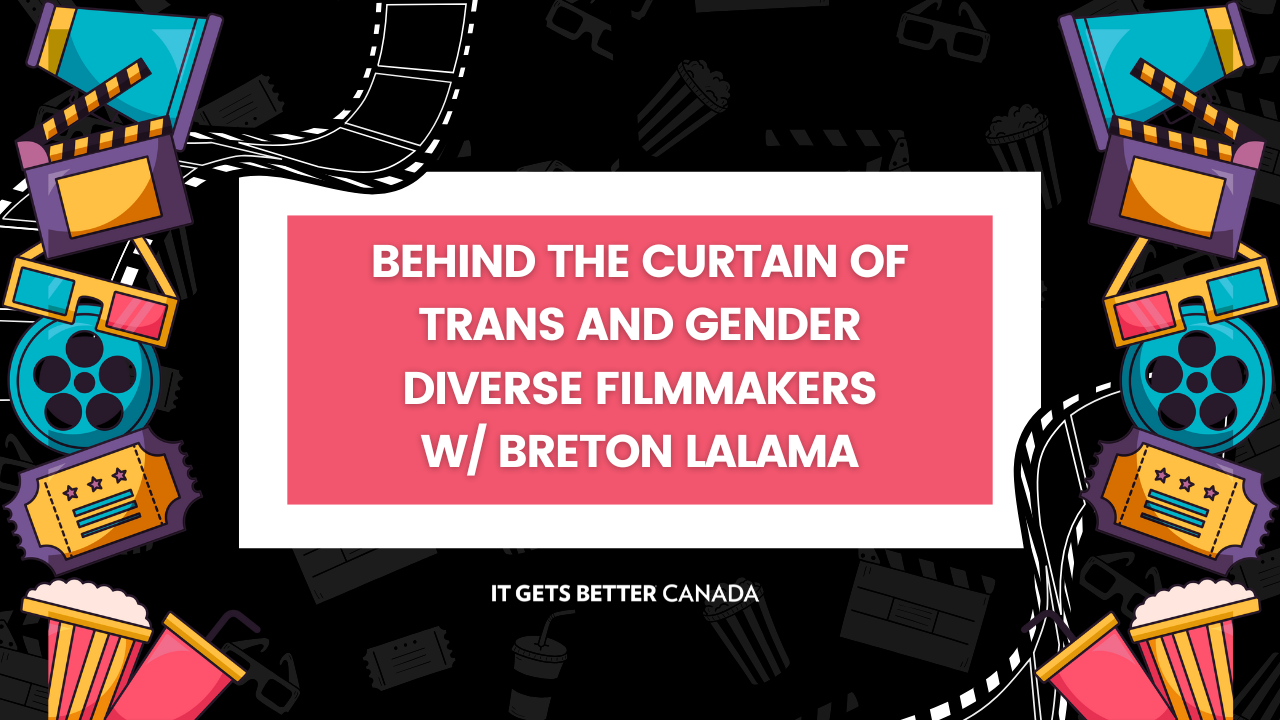
A glimpse behind the curtain of trans and gender diverse filmmakers w/ Breton Lalama We sat down with the co-founder of Spindle Films Breton Lalama!
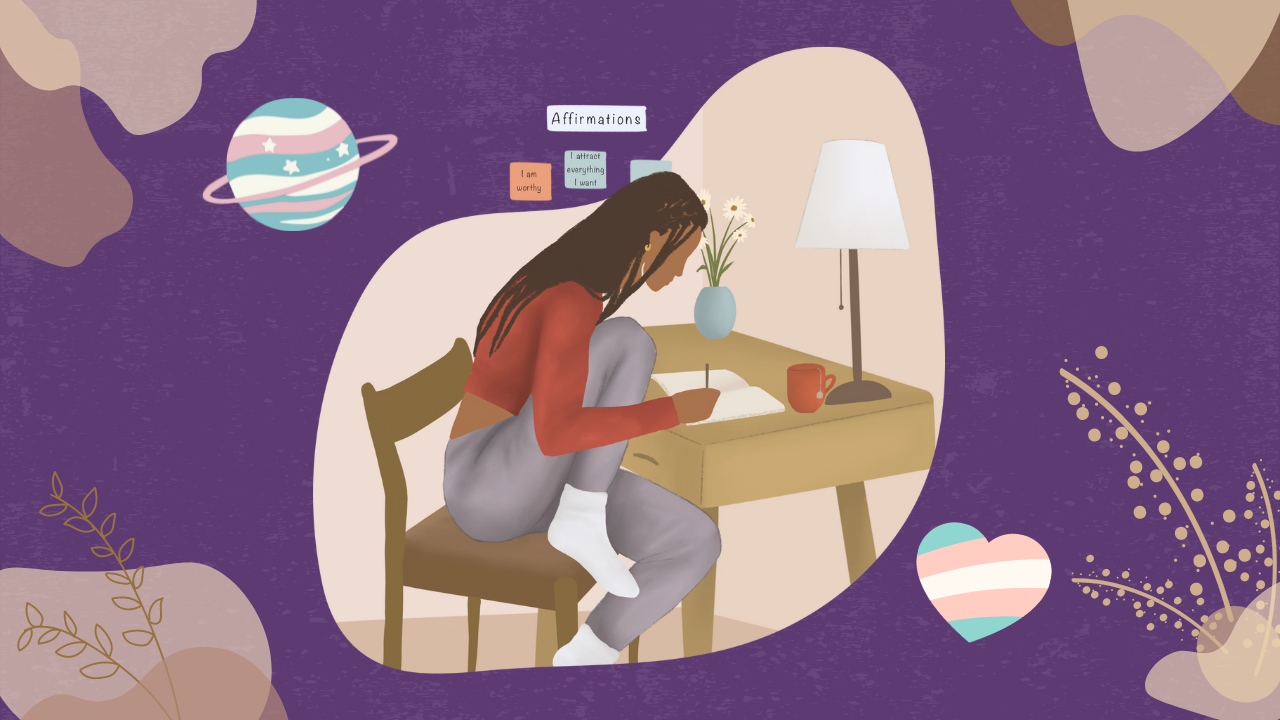
Luna Oberlin: A Woman Within Embracing one’s identity is a journey that unfolds uniquely for each individual, and for me, celebrating my queerness as a Black
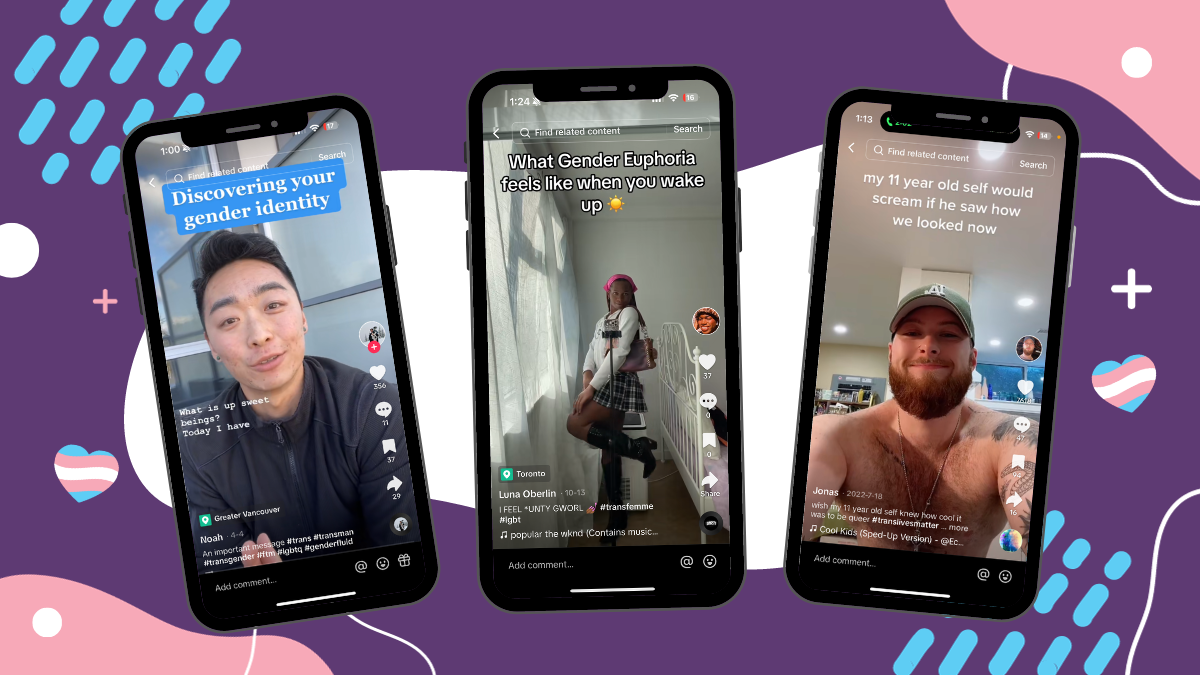
Trans Creators you should be following ! Transgender Awareness Week is a time to uplift, empower, and highlight trans voices. Now more than ever trans
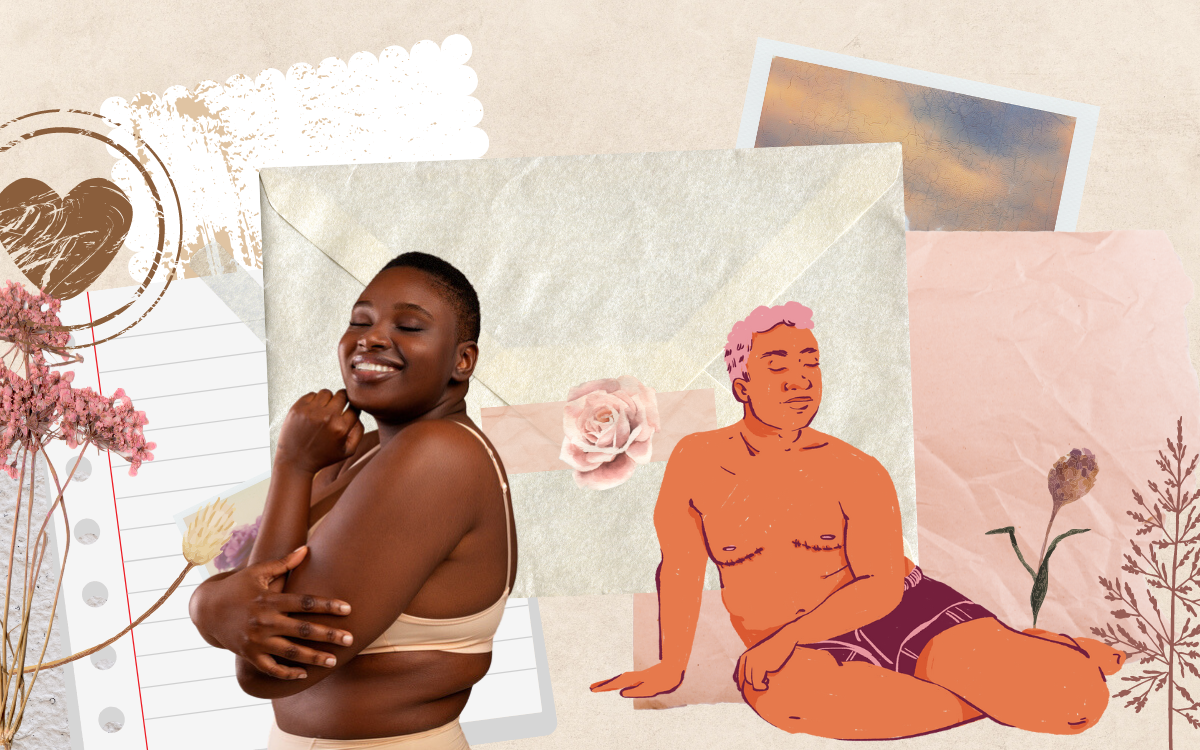
An uplifting piece written by Jack, encouraging, those who identify as fat, queer, and trans celebrating their existence and their validity! A love letter to

